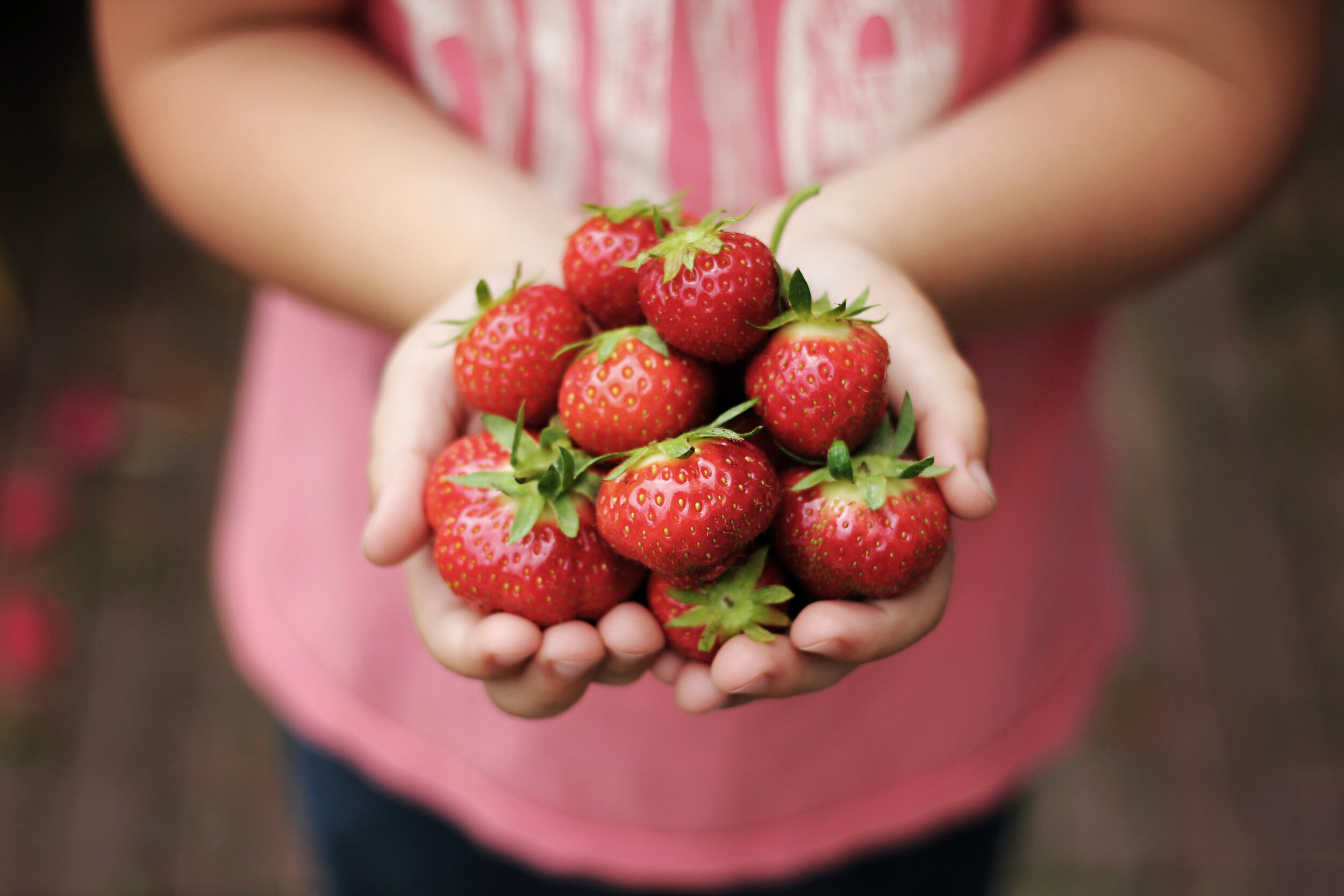You could be forgiven for thinking that if you want to eat truly healthy foods, you’d have to get produce from faraway shores: Avocado, quinoa, chia seeds, goji berries and chocolate, for example, are listed as so-called “superfoods”, thanks to their apparently amazing health-giving nutrients. But is that really true? Could we not get similar, just as healthy nutrients from the foods that grow right on our doorstep?
Fruit and vegetable imports allow us to eat strawberries and tomatoes in winter, green beans and asparagus long after the local season is over. We can have anything we want anytime. Perhaps buying local foods will reduce flexibility when planning your meals. However, buying local foods has many advantages. Here are just some of them:
Local produce is fresh and nutritious
Fruit and veg from other countries are often picked before they have had the opportunity to fully ripen and developed their full nutrient content. Otherwise, they would spoil too soon and go to waste. If your food is grown locally, farmers can afford to harvest later, when it is ready. Fully ripened produce not only tastes better, but it is also more nutritious and cheaper.
To take full advantage of local produce, you’ll need to know what’s in season. If you’re not sure, you can check here. As it happens, we are just entering the time of plenty. Summer and autumn provide a wide variety of local foods. It’s the perfect season to go local.
Worth the wait
Eating seasonal foods may mean that you can’t have anything you want anytime. However, I find that the anticipation of, say, strawberries and asparagus in spring increases the joy in eating them once they become available. After all, by then I haven’t eaten a fresh strawberry in months! What could taste better than a British strawberry in May?
Reducing your carbon footprint
Exotic foods, such as pineapples, bananas, mangos and avocados won’t thrive in our climate, so they are flown in or travel by ship from tropical countries. Food transport is responsible for 11% of greenhouse gas emissions. While, of course, tropical foods are delicious and not comparable to anything that grows in Northern Europe, nutritionally they don’t offer anything we cannot get from our own local plants. Is transporting food halfway around the world really worth it? Especially if then we end up binning so much of it? Avocados are famously tricky to get right: At first, they’re forever too hard to eat and then, before you know it, you’ve missed the right time, and they’ve gone all brown.
Saving money
Buying well-travelled produce from other countries is not cheap. You could save money buying local foods, especially if you are lucky enough to have a farm shop near you, where you can cut out the middleman.
Promoting heirloom varieties
In her book “Shopped – The shocking power of British supermarkets”, Joanna Blythman reveals that supermarket chains like their produce to be uniform, so that consumers know what to expect, regardless of whether they are shopping in a branch in Carlisle or one in Brighton. Ideally, therefore, they want, say, apples for the entire supermarket chain to all come from the same farm. Farmers have consequently adapted and now grow the popular varieties, such as Royal Gala or Braeburn, on a large scale.
Farmers that grow traditional British heirloom varieties produce much smaller quantities, which are therefore of no interest to supermarkets. They do, however, sell their produce on farmers markets or to local greengrocers. The same is true for meat from rare, traditional breeds of animals, which you are unlikely to find in a supermarket. Your local butchers, however, might offer it. By shopping at small local businesses, you can help to keep traditional varieties and breeds alive.
Supporting local businesses
Small farms and shops are having a hard time. Yet, as described in the previous section, they have a lot more flexibility over the selection of foods they offer, and you may discover some treasures you would never find in a supermarket. Also, by shopping there, you can help support the High Street and in particular small, local business owners.
Ethical Shopping
Our greed for trendy superfoods such as avocado, quinoa, chia seeds and almonds has created a lot of problems for the people in those foods’ countries of origin. Quinoa, a staple food in Peru, has become too expensive for locals to buy it as more money can be made from exports. Our call for avocados contributes to deforestation in Mexico. Moreover, avocado plants need a lot of water, creating water shortages for the local people. These are just a couple of examples of how our demand creates problems in faraway countries. Once you start looking into it, you’ll find that almost every foreign “superfood” is ethically problematic.
Now, I hope I haven’t ruined your good mood. Avocados are yummy, bananas make lovely ice cream and bread, and of course, there is nothing local that tastes like chocolate. There just isn’t. I’m not saying stop eating exotic foods, but I wanted to raise awareness of the problems they cause so that you can make an informed choice. Don’t stop buying pineapples, just buy them less frequently and make sure to eat them before they go off. Consider the delicious foods that are grown right here, where we are, and buy them to support their producers. Rediscover traditional recipes – all based on local foods – and give them a modern twist. At the end of the day, you may even find that local foods have made your meals more interesting!
For my tips on how to go local, read my newsletter next week. It’s not too late to sign up!

